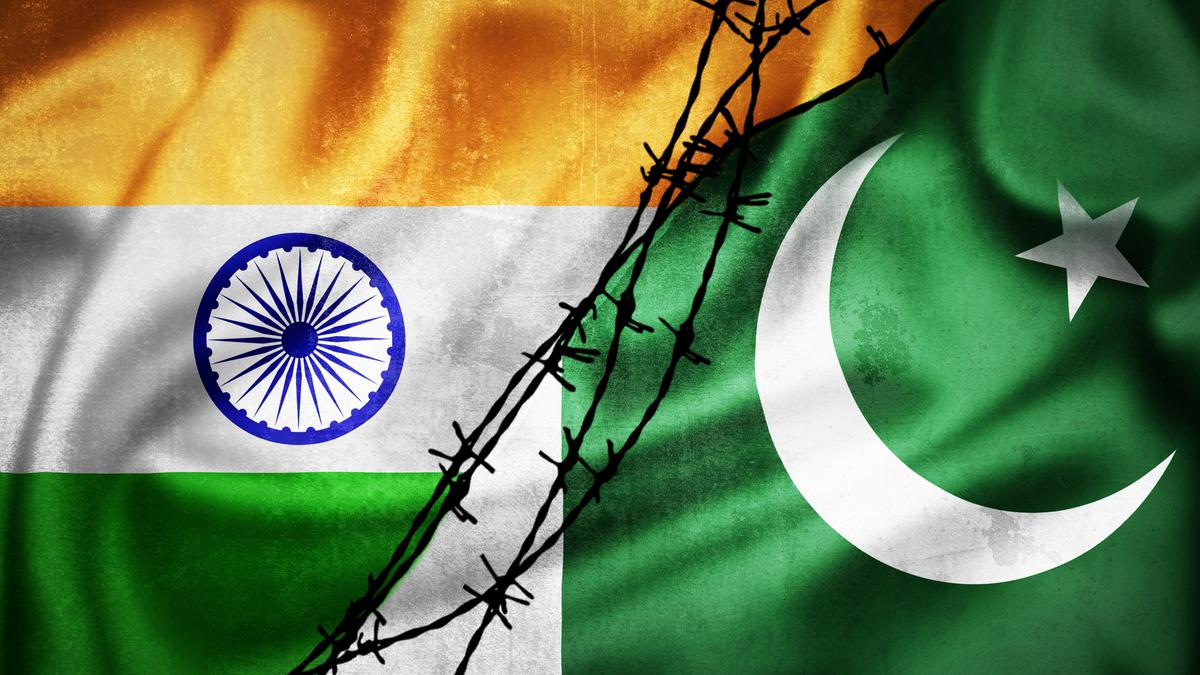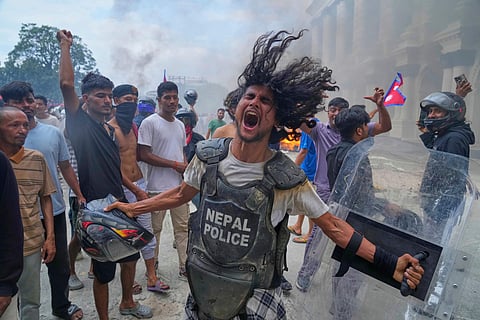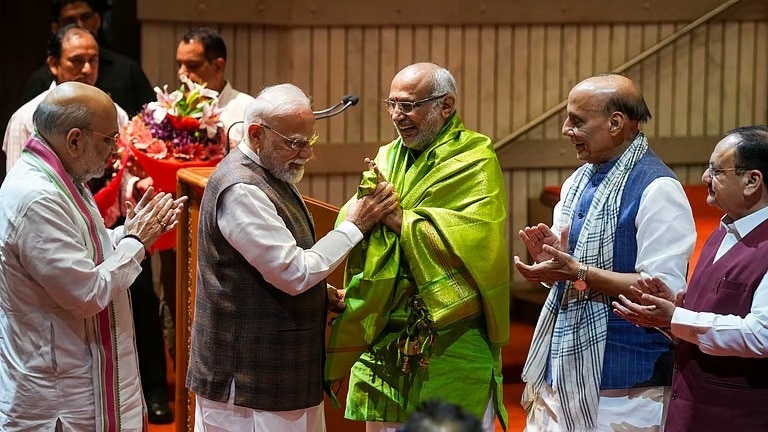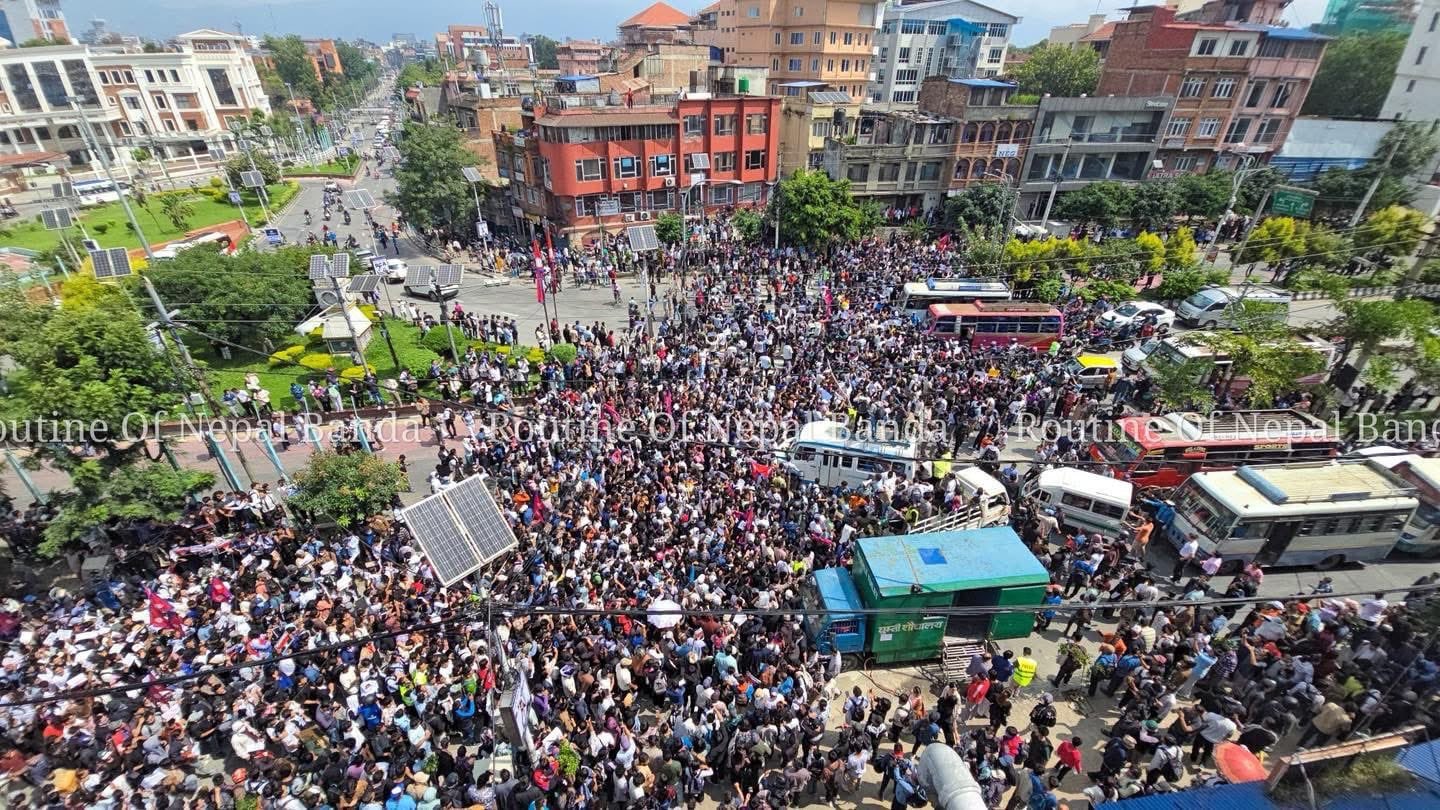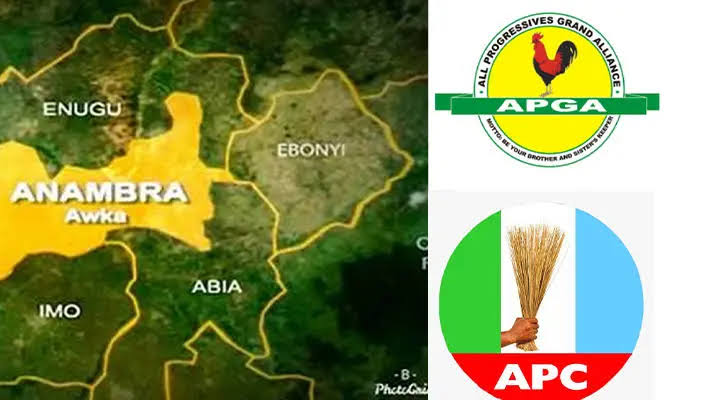Islamabad Urges Muslim Nations to Impress Upon New Delhi to De-escalate Tensions
PTI, NEW DELHI / ISLAMABAD, MAY 2, 2025 : India will be asking global multilateral agencies, including the IMF, to have a relook at funds and loans provided to Pakistan, as New Delhi seeks to corner the neighbouring country diplomatically following the dastardly terror attack in Pahalgam last month which killed 26 tourists.
“We will be asking all multilateral agencies to review the loans and support to Pakistan,” a Union government source said. Authorities have identified five terrorists — including three Pakistani nationals — behind the massacre in Pahalgam.
Defence Minister Rajnath Singh on Thursday termed Pakistan a rogue state that has been fuelling global terrorism. Meanwhile, Home Minister Amit Shah said the terrorists who carried out the ‘cowardly’ Pahalgam terror attack would not be spared.
The IMF Executive Board is scheduled to meet Pakistan officials on May 9 for the first review of the extended funding facility and a request for an arrangement under the resilience and sustainability facility. The IMF Board will evaluate a fresh USD 1.3 billion arrangement for Pakistan under its climate resilience loan programme. It will also assess an ongoing USD 7 billion bailout package.
As of December 31, 2024, the Asian Development Bank (ADB) has committed 764 public sector loans, grants, and technical assistance totalling USD 43.4 billion to Pakistan. ADB’s current sovereign portfolio in Pakistan includes 53 loans and 3 grants worth USD 9.13 billion. ADB committed a USD 320 million loan for the Khyber Pakhtunkhwa Rural Roads Development Project to upgrade around 900 kilometers of flood-susceptible rural roads in the province.
In January 2025, the World Bank approved a USD 20 billion lending package to Pakistan for the cash-strapped country to overcome its challenges.
Meanwhile, Pakistan Prime Minister Shehbaz Sharif on Friday urged brotherly countries, including Saudi Arabia, to impress upon India to de-escalate and defuse tensions heightened after the Pahalgam terror attack. Sharif separately met Saudi Ambassador Nawaf bin Saeed Al-Maliky, UAE Ambassador Hamad Obaid Al-Zaabi, and Kuwait Ambassador Nasser Abdulrahman Jasser in Islamabad, where the Prime Minister reaffirmed Pakistan’s desire for peace and stability in South Asia, state-run media reported.
The term brotherly countries is frequently used for Muslim countries such as Saudi Arabia, UAE, and Turkiye, with which Pakistan maintains good relations.
Radio Pakistan reported that while talking with Ambassador Nawaf, “The Prime Minister outrightly rejected baseless Indian accusations linking Pakistan to the Pahalgam incident without any evidence and reiterated his call for a transparent and neutral international investigation into the incident.”
While sharing Pakistan’s perspective on recent developments in South Asia after the Pahalgam incident, Shehbaz Sharif said: “Pakistan condemns terrorism in all its forms and manifestations.” The Prime Minister also highlighted the government’s complete focus on consolidating the hard-earned economic gains of the past 15 months, with the support of friendly countries, including Saudi Arabia. He added that it is inconceivable for Pakistan to act in an irresponsible manner to jeopardise its achievements and derail the country from the path of economic progress.
In another meeting, Sharif thanked the United Arab Emirates (UAE) Ambassador Hamad Obaid Al-Zaabi for unwavering support to Pakistan. He categorically rejected “the baseless accusations levelled by India in its desperate attempts to link Pakistan to the Pahalgam incident, without any evidence,” and instead shared how Pakistan has been a victim of terrorism over the last few decades.
The Prime Minister said Pakistan has nothing to do with the incident and emphasised that he has offered to have a credible, transparent, and neutral international investigation, the report said.
State-run news agency Associated Press of Pakistan reported that Sharif told the Kuwaiti Ambassador Nasser Abdulrahman Jasser that Pakistan was confident of its stance and had offered to the international community to conduct a credible, transparent, and neutral investigation into the incident.
All three ambassadors said their respective countries would work closely with Pakistan for maintaining regional peace and security.
On Thursday, Chinese Ambassador to Pakistan Jiang Zaidong met Prime Minister Sharif and exchanged views on the India-Pakistan tensions as Beijing kept abreast with the evolving situation.
On Wednesday, Qatar, Saudi Arabia, and Kuwait expressed their deep concern over the escalation of tension between India and Pakistan following the Pahalgam terror attack and called on both sides to exercise restraint and resolve the crisis through diplomatic channels.
Meanwhile, reports surfaced that Pakistan is planning to issue a formal diplomatic notice to India against its unilateral move to suspend the Indus Waters Treaty, a media report said Friday. The decision was made after initial consultations between Pakistan’s ministries of Foreign Affairs, Law, and Water Resources, reported The Express News.
Quoting sources, the newspaper said emergency legal and constitutional consultations were held in response to India’s unilateral move, and preliminary groundwork has been completed after which it has been decided to formally serve a diplomatic notice to India over the suspension of the treaty. India, among other punitive actions, announced to suspend the key water accord, signed in 1960, which governs water sharing between the two countries.


